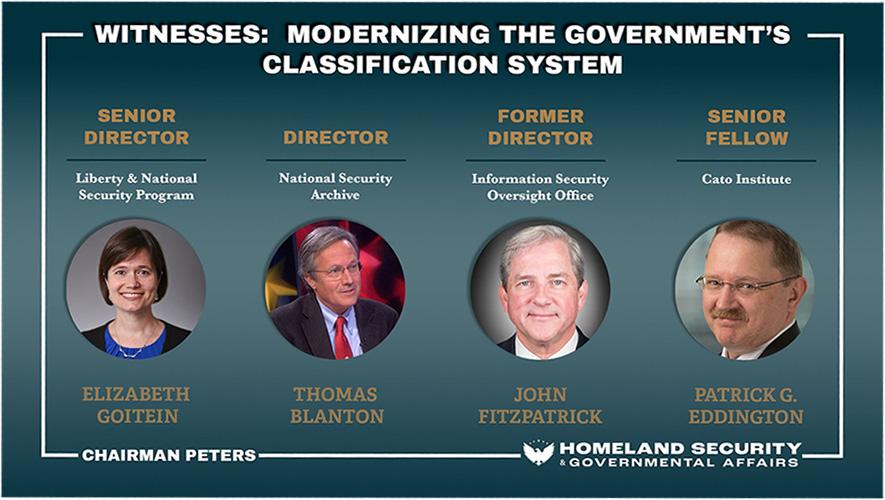Washington, D.C., March 23, 2023 - The United States Senate Committee on Homeland Security and Governmental Affairs invited the National Security Archive to testify today about ways to modernize the nation’s security classification system.
Archive director Tom Blanton, in a statement co-authored by Archive policy director Lauren Harper and Archive historian Dr. William Burr, described the crisis of over-classification, the enormous and growing backlogs of millions of classified records and thousands of unanswered declassification requests, and the incoming tsunami of digital secrets.
The Archive statement emphasized findings from our 2022 Freedom of Information Act (FOIA) audit showing the National Archives suffering from 30 years of an almost flat-lined budget while the number of records for which it is responsible has increased exponentially. The Archive highlighted four key components of the National Archives that, if fully funded, would be more prepared to meet these challenges, but that at present – together with the entire National Archives system – are funded at the level of two of the Marine One helicopters that ferry the President (roughly $217 million apiece). “The National Archives needs at least another chopper,” the Archive said.
To counteract over-classification, the Archive called for original classifiers to assign sunsets at the front end – dates at which classification would expire automatically – along with more focused consideration of the costs of secrecy and the benefits of public release. On the back end, the system needs “drop dead” dates for automatic release with little or no review. Even a 40-year date would be an improvement over the current, completely backlogged system, in which FOIA requesters can expect a 12-year wait before the classified records they're seeking even reach the review stage.


